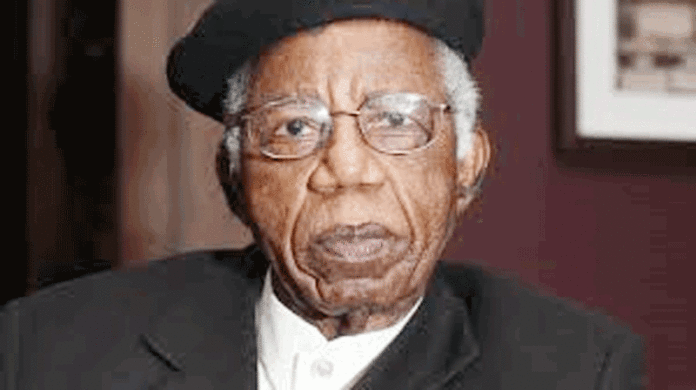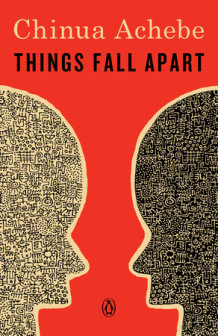
Illustrations © Nathan Gelgud
I heard once that Fritz Lang said of his anti-lynching film Fury that its main problem was that the protagonist was innocent. If you really want to send the message that lynching is wrong, you have the victim be guilty and still show that lynching is an inhumane response. Of course, the problem is that Hollywood producers would never have let Lang get away with that.
If Chinua Achebe’s Things Fall Apart, which turns 60 this year, is an anti-colonial novel in the way that Fury is an anti-lynching film, Achebe has solved Lang’s problem.
Things Fall Apart helped introduce African literature to the world (along with Amos Tutuola’s Palm Wine Drinkard), and has become a classic of global literature and a fixture in the western canon. But if you haven’t read it, you might hear it reduced by short description to a simple fable about the horrors of colonialism destroying halcyon life among primitive people.
So I was surprised, reading it last month, that the first two-thirds of the book has no mention of the missionaries that will arrive in later chapters. And what we find in the story before the first signs of colonialism is not a simple, lovely life. It’s a complicated, rich portrait of a culture that operates by customs and laws that are, to say the least, hard to accept. The protagonist Okonkwo beats his wives and children. Infant twins, thought to be evil, are left for dead in a haunted forest. Other babies who are thought to be possessed are mutilated before being killed so that if they return they can be identified by their marks. Members of the village are killed because an oracle, with no explanation, says it must be so.
But the easy interpretation of Things Fall Apart is that life before colonialism was pure, and that the arrival of the missionaries made everything go south, so Achebe’s unflinching depiction of the violence in the Igbo culture (rebranded “Ibo” in the novel) seems to be often overlooked. This is true for positive capsule reviews and for critics alike. As the New York Times obituary of Achebe pointed out, the author wrote in his memoir Home and Exile that “an offended and highly critical English reviewer in a London Sunday paper titled her piece cleverly, I must admit, ‘Hurray to Mere Anarchy!’”
But Things Fall Apart is so much more complicated. Even in its quiet moments, Achebe captures the feeling of a magical life before the invasion of colonialism intersecting with a menacing undercurrent of fear:
The night was very quiet. It was always quiet except on moonlight nights. Darkness held a vague terror for these people, even the bravest among them. Children were warned not to whistle at night for fear of evil spirits. Dangerous animals became even more sinister and uncanny in the dark. A snake was never called by its name at night because it would hear. It was called a string.
The night is quiet. But danger approaches.















